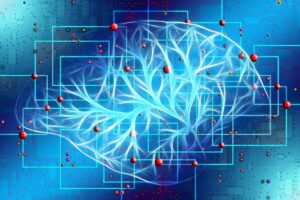AI could be as consequential to the economy as electricity

source: cnn.com (contributed by FAN, Bill Amshey) | image: pexels.com
Jamie Dimon believes artificial intelligence will have a huge impact on global business this year.
Dimon, one of the world’s most influential business leaders, said in his annual shareholder letter Monday that while he doesn’t yet know the full effect AI will have on business, the economy or society, he knows its influence will be significant.
“We are completely convinced the consequences will be extraordinary and possibly as transformational as some of the major technological inventions of the past several hundred years: Think the printing press, the steam engine, electricity, computing and the Internet, among others,” the JPMorgan Chase (JPM) CEO wrote in the letter.
The AI explosion has already transformed workplaces across the world and nearly 40% of global employment could be disrupted by AI, according to the International Monetary Fund.
Industries from medicine to finance to music have already felt its effects.
Shares of companies associated with the AI boom have soared. Chipmaker Nvidia (NVDA) is up more than 219% over the last 12 months, while Microsoft (MSFT) is up nearly 50%.
JPMorgan, the world’s largest bank by market capitalization, is exploring the potential of generative AI within its own ecosystem, said Dimon. Software engineering, customer service and operations and general employee productivity are all getting AI makeovers.
“Over time,” wrote Dimon, “we anticipate that our use of AI has the potential to augment virtually every job, as well as impact our workforce composition. It may reduce certain job categories or roles, but it may create others as well.”
JPMorgan’s organization now includes more than 2,000 AI and machine learning experts, and the bank recently announced a new position for a chief data & analytics officer that sits on their operating committee.
Dimon also recognized the risks that come with the AI boom. “You may already be aware that there are bad actors using AI to try to infiltrate companies’ systems to steal money and intellectual property or simply to cause disruption and damage,” he wrote.
In January, JPMorgan said it had seen a sizable increase in daily attempts by hackers to infiltrate its systems over the last year, highlighting the escalating cybersecurity challenges the bank and other Wall Street firms are facing.
JPMorgan Chase, the largest US bank by assets, now invests $15 billion a year and employs 62,000 technologists to, in part, help fortify its defense against cyber crimes.
